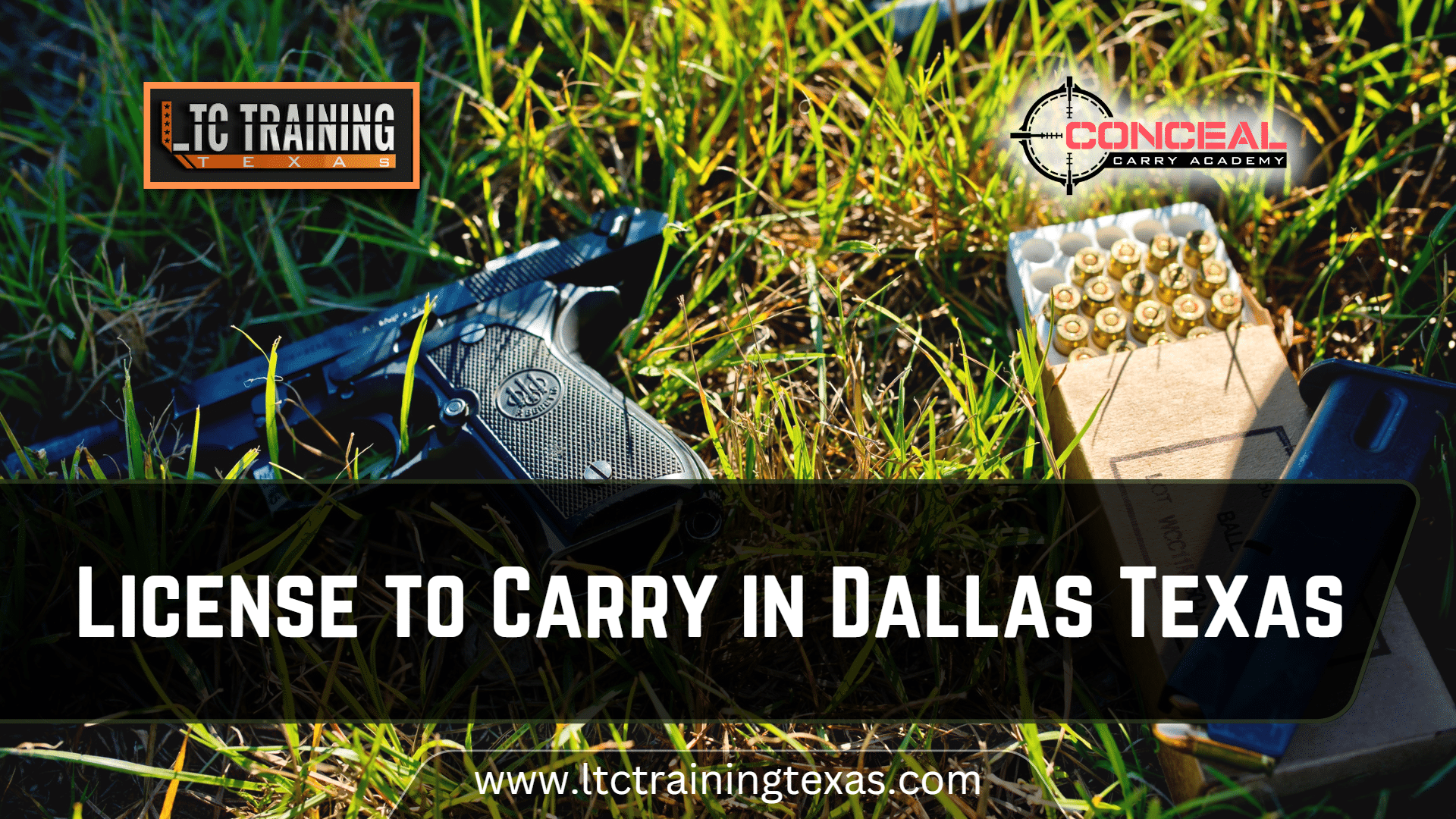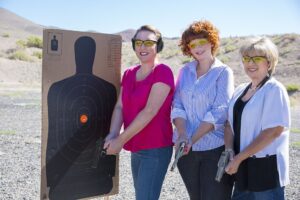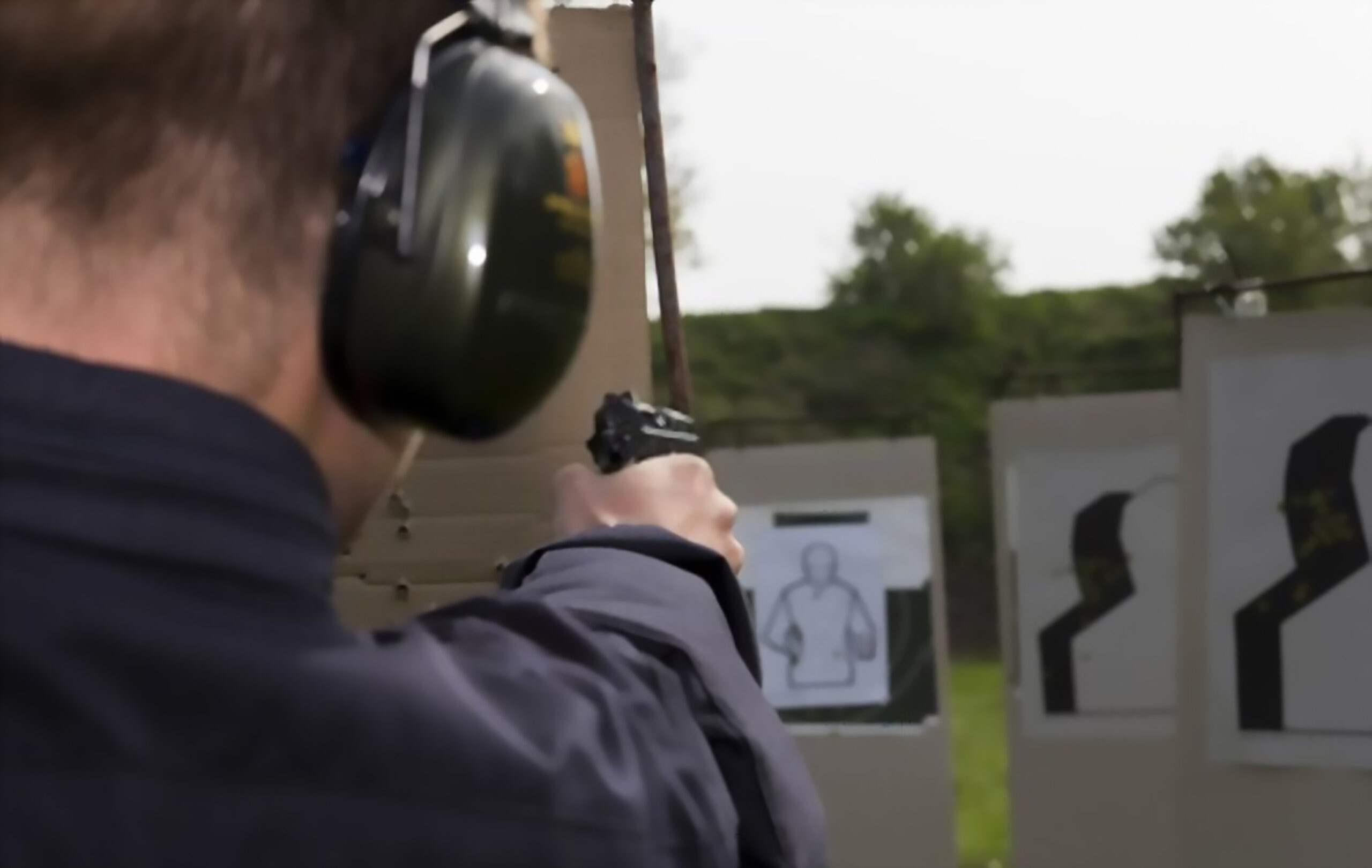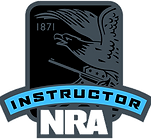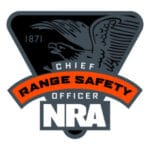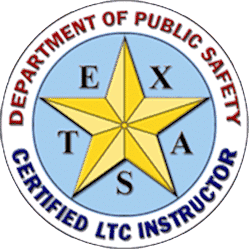Your Guide to Getting a (LTC) License to Carry in Dallas Texas
Thinking about carrying a concealed handgun for self-defense in Dallas? Obtaining a License to Carry (LTC) in Texas allows you to legally carry a concealed handgun throughout the state and potentially in many other states with reciprocity agreements. This comprehensive guide will walk you through everything you need to know about getting your LTC in Dallas, from eligibility requirements and the LTC course to applying for your license and practicing responsible gun ownership.
Understanding License to Carry in Dallas Texas
Texas is a gun-friendly state, and since September 2021, residents have been able to carry a handgun openly without a license. However, if you want to carry a handgun concealed, you’ll need a License to Carry (LTC). An LTC also offers several benefits beyond concealed carry:
- Reciprocity: Your Texas LTC is recognized for concealed carry in many other states, allowing you to legally carry your concealed handgun while traveling.
- Federal Building Access: An LTC can grant you access to certain federal buildings that may otherwise prohibit firearms. However, federal buildings have independent authority to regulate firearms on their property, so it’s always best to check with the specific building or agency for their policies before carrying.
Are You Eligible for an License to Carry in Dallas Texas?
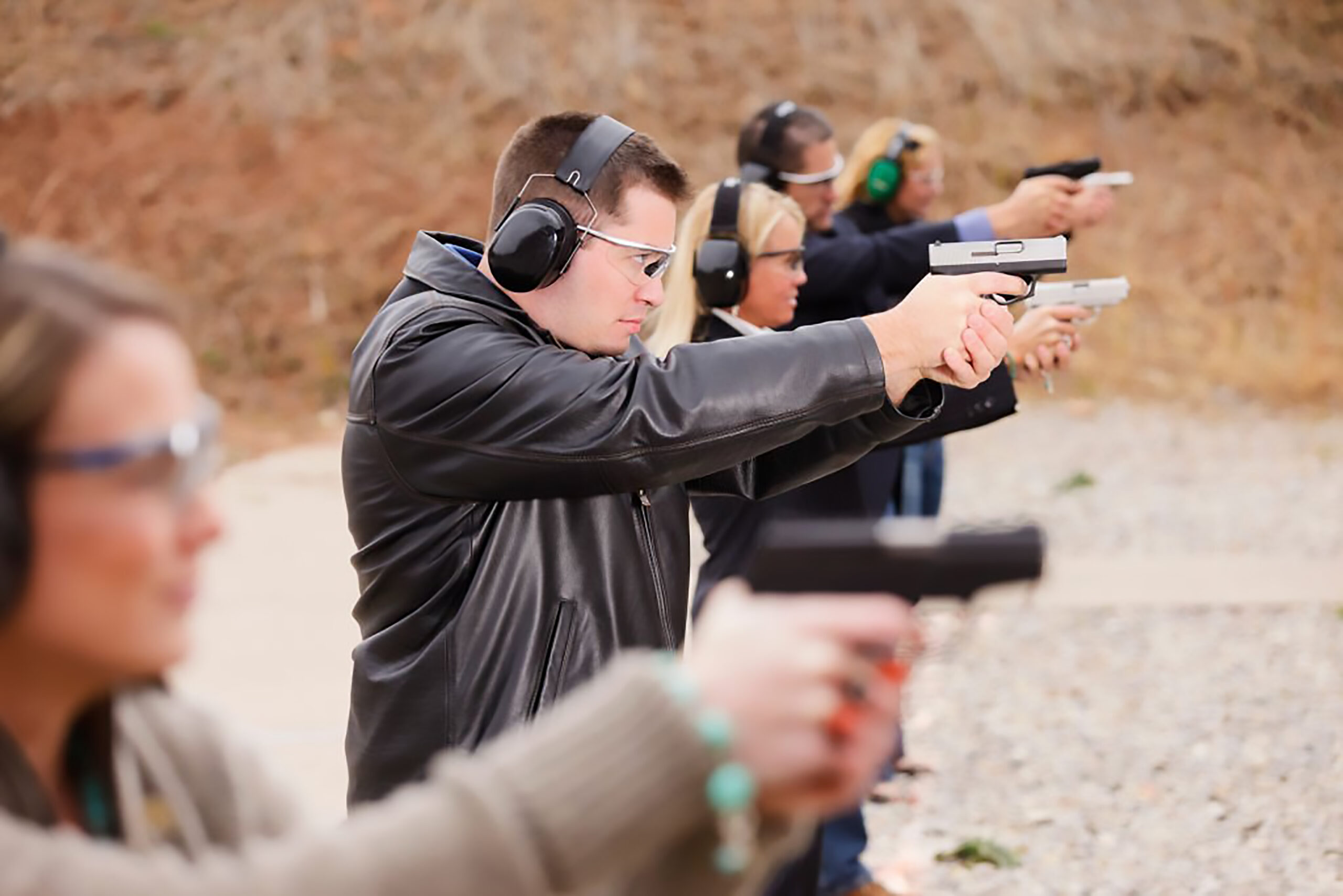
Before you embark on the LTC application process, it’s crucial to ensure you meet the eligibility requirements for the Texas Handgun License. Here’s a breakdown of the key criteria:
- Age: You must be at least 18 years old.
- Residency: You do not need to be a resident of the State of Texas.
- Background Checks: You cannot have been convicted of a felony, be a fugitive from justice, or be under indictment for a felony offense. You also cannot have a court-ordered mental health commitment.
If you don’t meet these criteria, there are still options for self-defense. Consider taking a self-defense class offered by a reputable organization like the National Rifle Association (NRA) or the American Red Cross. These courses can teach you de-escalation techniques, basic self-defense skills, and home security measures. You can also explore non-lethal deterrents like pepper spray or a personal alarm, although laws governing the use of these items can vary by state and municipality, so be sure to research local regulations.
The Texas License to Carry Course: Your Foundation in Gun Safety
The mandatory LTC course is a crucial step in obtaining your license. This course equips you with the knowledge and skills necessary for safe and responsible gun handling. Here’s what you can expect to learn in an LTC course:
- Firearm Laws: You’ll gain a thorough understanding of Texas laws concerning firearms, including use of force principles, carrying restrictions, and proper handgun transportation. The Texas DPS website offers a comprehensive guide to Texas Law on Handguns, which can be a helpful resource beyond the LTC course: https://www.dps.texas.gov/section/handgun-licensing
- Safe Handling and Storage: The course will emphasize the importance of safe gun storage practices to prevent accidents and unauthorized access. You’ll learn about different safe storage options like gun safes, trigger locks, and cable locks. The National Shooting Sports Foundation (NSSF) offers resources and information on safe gun storage on their website, including a guide on choosing the right gun safe: https://www.nssf.org/safety/
- Non-Violent Conflict Resolution: The course will cover strategies for de-escalating potentially dangerous situations and avoiding the use of force whenever possible. Learning de-escalation techniques can help you avoid a situation where you might need to use your firearm in self-defense.
Finding a DPS-Approved LTC Course in Dallas
The Texas Department of Public Safety (Texas DPS) regulates LTC courses and instructors. Here’s how to find a reputable course in Dallas:
- Search the Texas DPS Website: Visit the Texas DPS website and utilize their search tool to find LTC instructors in the Dallas area. You can filter by location, instructor name, and course date.
- Consider Course Options: Both online and in-person LTC courses are available. Online courses offer flexibility, but some may require a separate shooting qualification at a range. In-person courses provide a more hands-on learning experience and allow for direct interaction with the instructor. Here are some additional factors to consider when choosing a course:
- Course Curriculum: Review the course curriculum to ensure it covers all the mandatory topics outlined by the Texas DPS, including legalities, safe handling, and use of force. Some courses may offer additional training modules on specific topics like medical aid for gunshot wounds or advanced marksmanship.
- Instructor Qualifications: Look for instructors with experience and positive reviews. The Texas DPS website lists instructor qualifications, but you can also find valuable insights through online reviews and recommendations from gun clubs or shooting ranges in Dallas.
- Class Size: Consider the class size when making your decision. Smaller class sizes allow for more individualized attention from the instructor and opportunities to ask questions.
Choosing the Right Course:
- Schedule and Budget: Consider your schedule and budget when selecting a course. Online courses may be more affordable, while in-person courses may offer extended schedules or weekend options. Our License to Carry LTC Classes are online and only $40.
- Learning Style: Think about your preferred learning style. Our LTC class in Dallas is part of our online courses offer flexibility and self-paced learning, while in-person courses provide a more interactive experience with opportunities for hands-on practice.
The LTC Course Fee:
The cost of the LTC course can vary depending on the instructor and the format (online vs. in-person). Generally, you can expect to pay between $75 and $200 for the course itself. There are additional costs associated with fingerprinting and the LTC application fee, which we’ll cover in the next section.
Our Online License to Carry Dallas Texas Class is only $40 and 100% online
Applying for Your LTC in Dallas: A Step-by-Step Guide
Now that you’ve completed your LTC course and understand the fundamentals of safe gun handling, it’s time to apply for your License to Carry. Here’s a detailed breakdown of the application process:
1. Gather Required Documents:
- LTC Application (LTC-101): Download the application form from the Texas DPS website.
- Completion Certificate: Obtain a copy of your completion certificate from your LTC course instructor. You can print yours immediately after completing our online course.
- Proof of Residency: This could be a driver’s license, or other document with your current address.
- Proof of Citizenship: A U.S. birth certificate, passport, or certificate of naturalization is acceptable.
- Fingerprint Receipt: After getting electronically fingerprinted by a DPS-authorized provider, you’ll receive a receipt with a Transaction Control Number (TCN).
2. Submitting Your Application:
- Online or Mail: You can submit your completed application electronically through the Texas DPS website or by mail. Here’s a link again for your convenience: [link to Texas ltc application ON Texas.gov dps.texas.gov]
- Fees: There are application and fingerprint processing fees associated with obtaining an LTC. The current fees can be found on the Texas DPS website. Here’s a direct link to the fee schedule: [link to Texas ltc fees ON Texas.gov dps.texas.gov]
Texas LTC State License Fee
The Texas LTC class is a great way to get your license and start carrying the firearm that suits you best. You’ll apply online, pay an applicable fee (which changes depending on which type of applicant you are), then receive your permit in mail within about 60 business days!
- Standard $40
- Active Duty Military $0
- Veteran $25
- State Correctional Officer $0
- County Jailer $0
3. Processing Time and Timeline:
The Texas DPS typically processes LTC applications within 2-4 weeks or up to 60 days. You can check the application status online using your TCN.
Additional Considerations:
- Application Denial: If your application is denied, you have the right to appeal the decision. The Texas DPS website provides information on the appeal process, including timelines and required documentation. [link to Texas ltc appeal process ON Texas.gov dps.texas.gov]
- LTC Renewal: Your LTC is valid for four years and can be renewed through the Texas DPS website before the expiration date. The renewal process is generally simpler than the initial application, but there may be fees associated with renewal.
We’ve covered the application process, but responsible gun ownership goes beyond obtaining a license. In the next section, we’ll delve into safe storage practices and ongoing education for LTC holders.
Responsible Gun Ownership: A Commitment to Safety
1. Safe Gun Storage at Home:
Here are some additional tips for safe gun storage at home:
- Unloaded and Separate Storage: When not in use, firearms should be unloaded and stored separately from ammunition. This adds an extra layer of safety, especially in homes with children or other individuals unfamiliar with proper gun handling.
- Quick Access vs. Security: While some gun owners prioritize quick access for self-defense purposes, it’s crucial to find a balance between accessibility and security. Biometric safes offer a combination of security and faster access compared to traditional key or combination locks.
- Safety Awareness for Everyone in the Home: If you live with family members or roommates, it’s important to educate them about gun safety procedures, including storage location, safe handling practices, and what to do if they discover a firearm.
2. Ongoing Education and Training:
Here are some benefits of ongoing education and training for LTC holders:
- Legal Updates: Firearm laws can change, and staying informed about relevant legal updates can ensure you’re compliant and avoid any unintentional violations. The Texas DPS website offers a section dedicated to legal updates regarding firearms.
- Defensive Shooting Skills: While LTC qualification courses cover basic marksmanship, taking additional defensive shooting courses can help you develop the skills and knowledge needed to handle a high-stress self-defense situation. These courses may focus on drawing from a holster, firing under pressure, and situational awareness.
- Medical Aid Training: Knowing how to provide basic medical aid in the aftermath of a shooting incident can be crucial. Consider taking a course in first aid or bleeding control to be prepared for any emergency.
Resources for LTC Holders in Dallas:
- Shooting Ranges: Many shooting ranges in Dallas offer memberships, shooting lanes, and instruction specifically designed for LTC holders. Look for ranges with qualified instructors who offer courses on defensive handgun use, low-light shooting, and other relevant topics.
- Online Resources: There are numerous online resources available for LTC holders, including instructional videos, safety tips, and legal information. However, it’s important to critically evaluate the credibility of online sources and prioritize information from reputable organizations like the National Rifle Association (NRA) or the National Shooting Sports Foundation (NSSF).
Remember: Responsible gun ownership is a shared responsibility. By following these safe storage practices and committing to ongoing education, you can ensure the safe and legal use of your firearm.
Final Note:
This blog post serves as a comprehensive guide to obtaining a License to Carry in Dallas Texas. However, it’s important to consult the Texas DPS website for the most current and accurate information on laws, regulations, and application procedures.
We hope this information empowers you to make informed decisions about gun ownership and personal safety.
Frequently Asked Questions (FAQs) About License to Carry in Dallas Texas
This section addresses some of the most frequently asked questions regarding License to Carry in Dallas, along with additional insights:
Can I carry my LTC firearm into a bar in Dallas?
No, it is generally illegal to carry a handgun into a bar with a state issued TABC license to sell alcohol for on-premises consumption. Texas Penal Code Section 46.035 prohibits carrying a handgun on the premises of a business that primarily sells alcoholic beverages for on-premises consumption. There may be exceptions for private security personnel with proper licensing issued by the Texas DPS. Always check for signage at establishments that prohibit firearms, and when in doubt, it’s best to err on the side of caution and leave your firearm at home. If you’re unsure about a specific business, consulting with an attorney specializing in firearms law can provide definitive guidance.
How long does the LTC qualification shooting test take?
The duration of the shooting qualification test can vary depending on the range and the specific requirements of your LTC course. It typically involves demonstrating safe handling and marksmanship proficiency by hitting designated targets at specified distances. The LTC course curriculum should outline the qualification requirements, and the instructor will be able to provide an estimated timeframe for completing the shooting test.
What if I lose my LTC?
If you lose your LTC, you must report it to the Texas DPS immediately. You can report a lost or stolen LTC online through the Texas DPS website or by calling their License to Carry Section. You can then apply for a replacement license through the Texas DPS website. There may be a fee associated with replacing a lost LTC.
What happens if I am arrested while carrying my LTC firearm?
If you are arrested while carrying your LTC firearm, it is crucial to remain calm and cooperative with law enforcement officers. Identify yourself as an LTC holder and inform them that you are carrying a firearm. Avoid making any sudden movements or reaching for your firearm. It’s best to refrain from discussing the details of the incident or the reason for carrying your firearm. The most important thing is to ensure your safety and the safety of the officers. Exercise your right to remain silent and request to speak with an attorney specializing in firearms law as soon as possible. An attorney can advise you on your legal rights and help navigate the legal process.
Do you need a license to carry in Dallas Texas?
As of September 1, 2021, you do not need a license to carry a handgun openly in Dallas, Texas. This is thanks to the permitless carry law passed by the Texas Legislature.
However, if you want to carry a handgun concealed, you will need a License to Carry (LTC) issued by the Texas Department of Public Safety (Texas DPS). An LTC offers several benefits beyond concealed carry, including reciprocity with many other states and access to certain federal buildings.
In Dallas Texas can you open carry a handgun?
Yes, in Dallas, Texas you can open carry a handgun as of September 1, 2021. This is thanks to a permitless carry law passed by the Texas Legislature. However, there are some important regulations to remember for open carry:
– The firearm must be carried in a shoulder or belt holster.
– You cannot carry a handgun openly if you are prohibited by federal law from possessing a firearm. This includes those convicted of felonies or domestic violence misdemeanors.
Here are some additional points to consider:
– While open carry is legal, it’s not necessarily recommended in all situations. Open carry can be alarming to others, and it’s important to be aware of your surroundings and potential consequences.
– Businesses can still prohibit firearms on their premises, regardless of open carry laws. Look for signage regarding firearms when entering establishments.
– Even with a permitless carry law, there are still places where handguns are prohibited, such as schools, courthouses, and government buildings.
How hard is it to get a License to Carry in Dallas Texas?
Getting a (LTC) License to Carry in Dallas Texas is generally considered a straightforward process, but it does involve some steps and requirements. Here’s a breakdown of the difficulty:
Relatively Easy:
– No mandatory waiting period: Unlike some states, Texas doesn’t have a waiting period to apply for or receive your LTC after completing the required course and submitting your application.
– Online application option: The Texas DPS allows you to submit your LTC application electronically, streamlining the process.
– Multiple course options: You have the flexibility to choose between online or in-person LTC courses to fit your learning style and schedule.
Requires Effort:
– LTC course completion: You must take a mandatory LTC course that covers firearm laws, safe handling, and use of force principles. This can involve classroom instruction, range qualification, and associated fees.
– Background check: The application process includes fingerprint-based background checks, which can take some time to process.
– Knowledge of Texas gun laws: Understanding the legalities of carrying a concealed handgun is crucial. The LTC course covers these laws, but it’s also beneficial to familiarize yourself with relevant Texas Penal Codes.
Overall Difficulty:
While obtaining an (LTC) License to Carry in Dallas Texas requires some effort and adherence to specific guidelines, it’s generally considered an achievable process for responsible gun owners who are willing to complete the required training and background checks.
Here are some additional factors to consider:
Wait times: Processing times for LTC applications can vary depending on the Texas DPS workload. It typically takes 2-4 weeks, but it could be longer.
Cost: There are associated fees for the LTC course, fingerprinting, and the LTC application itself.
Disclaimer:
This blog post is intended for informational purposes only and should not be construed as legal advice. It’s advisable to consult with an attorney for legal guidance on specific situations or questions regarding LTCs and gun laws in Texas.
Save your gas Money and take our License to Carry in Dallas Texas LTC Class online
Servicing all Dallas Zip Codes
75201, 75202, 75203, 75204, 75205, 75206, 75207, 75208, 75209, 75210, 75211, 75212, 75214, 75215, 75216, 75217, 75218, 75219, 75220, 75221, 75222, 75223, 75224, 75225, 75226, 75227, 75228, 75229, 75230, 75231, 75232, 75233, 75234, 75235, 75236, 75237, 75238, 75240, 75241, 75242, 75243, 75244, 75246, 75247, 75248, 75249, 75250, 75251, 75252, 75253, 75254, 75260, 75261, 75262, 75263, 75264, 75265, 75266, 75267, 75270, 75275, 75277, 75283, 75284, 75285, 75287, 75301, 75303, 75312, 75313, 75315, 75320, 75326, 75336, 75339, 75342, 75354, 75355, 75356, 75357, 75358, 75359, 75360, 75367, 75368, 75370, 75371, 75372, 75373, 75374, 75376, 75378, 75379, 75380, 75381, 75382, 75389, 75390, 75391, 75392, 75393, 75394, 75395, 75397, 75398

